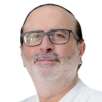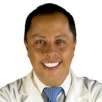NEW YORK, N.Y., USA: Dental professionals across North America were featured prominently in the national news cycle throughout August after an Associated Press National Investigative Team article was released under headlines such as “Medical benefits of dental floss unproven.” Local newspapers and other media outlets across the U.S. and Canada and internationally ran the article — or variations of it — many also including comments from their markets’ dental professionals to provide local perspective.
Major dental organizations released statements, too, including the American Dental Association, the Academy of General Dentistry, the American Academy of Periodontology and the American Dental Hygienists’ Association.
The U.S. Department of Health and Human Services also weighed in, in response to a request from the ADA. The HHS was at the center of the story because the AP’s flossing references were triggered by a 2015 decision by the HHS to no longer include a recommendation for daily flossing in the latest U.S. Dietary Guidelines — in part because the rigor of available science was not as strong as the science backing other recommendations in the guidelines.
The AP team immediately saw the headline that would be of most interest, and flossing was suddenly sharing the mass-media stage with coverage of the U.S. presidential election and what the Kardashians were up to.
Virtually all of the commentary in response to the AP article confirmed that oral-health experts were adamantly still promoting the value of flossing — and that the change in dietary policy had more to do with the Dietary Guidelines Advisory Committee deciding to keep the policy narrowed on food and nutrient intake.
Still, there was broad agreement that large-scale, long-term scientific studies on interdental care would be beneficial. The AAP response stated: “Because the development of periodontal disease is slow in nature and because a variety of factors can impact its progression, studies that examine the efficacy of daily flossing are best conducted over a number of years and among a large population. Much of the current evidence does not utilize a large sample size or examine gum health over a significant amount of time. Additionally, many of the existing studies do not measure true markers of periodontal health, such as inflammation or clinical attachment loss. In the absence of quality research, patients should continue to include flossing as a part of their daily oral hygiene habit.”
Dental pros on radio, TV, online and front pages
But the folks who may have benefited most from the sudden media attention were dental professionals positioned in their various markets as experts available to provide a local perspective on the story. Among the thousands of examples on major search engines within days of the AP article first appearing:
- In an Aug. 3 article, Carol Kozma, staff writer with The Providence Journal in Providence, R.I., quoted Denise Shapiro, a periodontist in Providence: “Someone has got to do a study, I guess,” but then (Shapiro) added it would be difficult to tell a group of people not to floss for five years, and another to floss. “I understand that perhaps there is no specific scientific data to prove that point, but anecdotally, I will tell you that most dentists ... would find there is much less bleeding, much less inflammation,” when people floss, Shapiro said. “Anyone who is working in the field will say there is a difference.”
- In an Aug. 4 article, Ameya Charnalia, with the Edmonton Sun in Edmonton, Alberta, turned to Dr. Liran Levin, head of periodontology at the University of Alberta: “From here, people took it to ‘OK we don’t need to floss anymore,’ but it’s exactly the opposite,” (Levin) said. “Flossing is very difficult to do effectively and most people don’t do it correctly, and this is why the result showed that the evidence is rather limited. ... It’s not an Albertan or Edmontonian problem,” he said. “It’s a worldwide problem. People don’t like to floss and if they do then they don’t do that correctly.”
- In the Tahlequah Daily Press in Tahlequah, Okla., reporter Sean Rowley in an Aug. 11 article quoted Dr. Tom McConnell of McConnell Family Dentistry: “It’s common sense,” (McConnell said). “I like to eat meat, and I pull tons of meat out of my teeth when I floss. When you chew on steak, it gets between teeth, and if you leave it even overnight, it can fester and leave a little boil next to your gums. … If you notice that your gums bleed easily, you might have built up some tartar, which acts as an irritant,” McConnell said. “Over time, you get a situation where your gums peel back and you can see the roots of the teeth.”
- On Aug. 11, the University of New England website posted an article summarizing comments made by Jon Ryder, DDS, MS, dean of the College of Dental Medicine, in interviews with the press across Maine, including the Maine Public Broadcasting Network, the Bangor Daily News, the Journal Tribune (Biddeford/York County) and WMTW TV in Portland: “Most people actually have missing or tilted or crooked teeth, and we need to have these (flossing) instruments at our disposal to help prevent further disease and reduce the amount of plaque on the teeth,” Ryder said.
- In a segment airing on Aug. 2, NPR’s All Things Considered quoted Los Angeles periodontist Joan Otomo-Corgel, a member of the American Academy of Periodontology: (Otomo-Corgel) remembers learning that a lot of patients lie to their dentists about how much they floss. And a survey by the academy found that almost 15 percent of adults would rather clean a toilet than floss their teeth. “So there is a taboo. And my concern is that the public picks up on this and says, ‘Oh, flossing is not a benefit. That means I don’t have to do it,’” says Otomo-Corgel. She says, based on her own observations during 32 years of practice, flossing does help get rid of films of bacteria that gunk up the space between teeth, causing infections and, potentially, contributing to bigger health problems. “Biofilms are live,” she says. “I mean, you look at it under a microscope, you have swimmers. You have different types of bacteria that form, and the longer they stay, the more virulent they become.” And that does not bode well for a person’s overall health, says Otomo-Corgel. It may be, she says, that studies on flossing just haven’t followed subjects for long enough to notice long-term benefits.
- It wasn’t just the traditional popular media grabbing the “is-flossing-optional?” hook. The investment-research website Morningstar looked at market ramifications of the AP article in a MarketWatch item on www.Morningstar.com., with Maria LaMagna reporting: Although sales of floss grew about 4.4 percent from 2010 to 2015, they’re projected to slow to 2.2 percent from 2015 through 2020, but don’t blame the AP’s report, said Eleanor Dwyer, a research associate at Euromonitor. Instead, it’s likely to happen because more households are (more) well-stocked with floss than they were in the past, and they don’t need to keep buying it, she said. “I don’t expect this new report to impact floss sales dramatically in the short term, as there is no compelling new evidence that it is harmful,” Dwyer said in an email. “People can physically see the plaque and food particles removed by floss, giving them personal confidence in its efficacy.” The AP’s report shouldn’t discourage people from flossing, said Marcelo Araujo, the vice president of the American Dental Association Science Institute. “This will trigger a great conversation between the patients and dentists,” Araujo said. “It could lead to people looking back at what they are doing every day and what kinds of products they’re using and asking the dentists how to use the products and what the best ones are.”
- Time Warner Cable News in Buffalo, N.Y., quoted Dr. Sebastian Ciancio, of the University of Buffalo School and Dental Medicine in an Aug. 2 piece by John Borsa: The government says there’s almost no evidence that flossing fights gum disease, and the studies that are out there (that) support flossing are considered weak or very unreliable, so the government removed the recommendation. (But) Ciancio says hold on – there’s plenty of evidence that flossing works. UB conducted a study of two kinds of dental floss. “Flossing does work, it helps patients get to the plaque where it does form between the teeth,” said (Ciancio). “Most flosses work quite well at removing plaque and reducing gingivitis … and what we found is both flosses reduced plaque by about 12-15 percent and gingivitis by 12-15 percent.” That’s not a big reduction, but if makes the difference between keeping your teeth or having them fall out, experts say keep flossing. Basically doctors should be telling patients that your oral health is important for the retention of your teeth, but your oral health affects your general health. Healthy mouth, healthy body.”
- BBC News in the United Kingdom on Aug. 3 quoted professor Damien Walmsley, a dentist with the University of Birmingham who also is a scientific adviser to the British Dental Association: (Walmsley) also said there is only “weak evidence” to suggest flossing is beneficial. “The difficulty is trying to get good evidence. People are different and large studies are costly to do ... until then you can’t really say yes or no.” (Walmsley) said “more sophisticated trials” were needed.
- The Greeley Tribune in Greeley, Colo., quoted local dentist Dr. Richard Waterman on the front page of its Aug. 12 edition in an article by staff reporter Mary-Kate Newton: “It might be kind of dangerous to report that there are no benefits to flossing,” he said. “It would be at least somewhat negligent not to recommend it,” (Waterman) said. “Dentists agree that proper technique is key to the success of flossing, and they say it may not have been considered in studies. “Sometimes if you are not using the proper technique, you could be causing trauma to the gum tissue. ... If you’re using that sawing motion, it’s kind of like brushing too hard. You mean well, but you can cause recession of the gum tissue.”
Some 9,000 dental professionals from around the globe are expected to convene in Seattle for the 123rd annual Pacific Northwest Dental Conference (PNDC), to...
NEW YORK, N.Y., USA: In response to recent news reports questioning whether scientific research supports oral health benefits associated with flossing, the ...
FORT COLLINS, Colo., USA: Most people know that good oral hygiene – brushing, flossing and regular dental visits – is linked to good health. Colorado ...
CHICAGO, Ill, USA: Oral Health America sure knows how to throw a party. “Mardi Gras Redux” was the theme for the 26th annual OHA Gala and ...
ANNAPOLIS, MD, USA: The Organization for Safety and Asepsis Procedures (OSAP) will hold its 2009 Symposium, Infection Prevention: Spread the Word, ...
The National Dental Association (NDA) will hold its 103rd Annual Convention from July 22 to 26 at the Atlanta Marriott Marquis in Atlanta. The meeting ...
The American Dental Association is “strongly” encouraging dental professionals to be vaccinated for COVID-19 and other infectious diseases. The ADA is ...
I came across Ed Sorel’s illustration “The Last Flossing” in a round-about way. Sorel is one of those artists whose work might be ...
WASHINGTON, D.C., USA: The National Dental Association (NDA) will hold its 101st Annual Convention July 25 to 29 at the Hilton Riverside Hotel in New ...
NEW YORK, N.Y., USA: An as-yet unstoppable increase in the number of people with diabetes or prediabetes in the United States and across the globe makes it ...
Live webinar
Thu. 18 April 2024
11:00 AM EST (New York)
Live webinar
Mon. 22 April 2024
10:00 AM EST (New York)
Prof. Dr. Erdem Kilic, Prof. Dr. Kerem Kilic
Live webinar
Tue. 23 April 2024
1:00 PM EST (New York)
Live webinar
Wed. 24 April 2024
8:00 AM EST (New York)
Dr. Yin Ci Lee BDS (PIDC), MFDS RCS, DClinDent Prosthodontics, Dr. Ghida Lawand BDS, MSc, Dr. Oon Take Yeoh, Dr. Edward Chaoho Chien DDS, DScD
Live webinar
Wed. 24 April 2024
1:00 PM EST (New York)
Live webinar
Thu. 25 April 2024
12:00 PM EST (New York)
Dra. Deborah Martinez LaForest, Dra. Macjorette Larez, Dr. Francisco Castellanos Medina, Dr. Francisco Eraso
Live webinar
Fri. 26 April 2024
12:00 PM EST (New York)



 Austria / Österreich
Austria / Österreich
 Bosnia and Herzegovina / Босна и Херцеговина
Bosnia and Herzegovina / Босна и Херцеговина
 Bulgaria / България
Bulgaria / България
 Croatia / Hrvatska
Croatia / Hrvatska
 Czech Republic & Slovakia / Česká republika & Slovensko
Czech Republic & Slovakia / Česká republika & Slovensko
 Finland / Suomi
Finland / Suomi
 France / France
France / France
 Germany / Deutschland
Germany / Deutschland
 Greece / ΕΛΛΑΔΑ
Greece / ΕΛΛΑΔΑ
 Italy / Italia
Italy / Italia
 Netherlands / Nederland
Netherlands / Nederland
 Nordic / Nordic
Nordic / Nordic
 Poland / Polska
Poland / Polska
 Portugal / Portugal
Portugal / Portugal
 Romania & Moldova / România & Moldova
Romania & Moldova / România & Moldova
 Slovenia / Slovenija
Slovenia / Slovenija
 Serbia & Montenegro / Србија и Црна Гора
Serbia & Montenegro / Србија и Црна Гора
 Spain / España
Spain / España
 Switzerland / Schweiz
Switzerland / Schweiz
 Turkey / Türkiye
Turkey / Türkiye
 UK & Ireland / UK & Ireland
UK & Ireland / UK & Ireland
 International / International
International / International
 Brazil / Brasil
Brazil / Brasil
 Canada / Canada
Canada / Canada
 Latin America / Latinoamérica
Latin America / Latinoamérica
 China / 中国
China / 中国
 India / भारत गणराज्य
India / भारत गणराज्य
 Japan / 日本
Japan / 日本
 Pakistan / Pākistān
Pakistan / Pākistān
 Vietnam / Việt Nam
Vietnam / Việt Nam
 ASEAN / ASEAN
ASEAN / ASEAN
 Israel / מְדִינַת יִשְׂרָאֵל
Israel / מְדִינַת יִשְׂרָאֵל
 Algeria, Morocco & Tunisia / الجزائر والمغرب وتونس
Algeria, Morocco & Tunisia / الجزائر والمغرب وتونس
 Middle East / Middle East
Middle East / Middle East
:sharpen(level=0):output(format=jpeg)/up/dt/2024/04/Study-points-to-lack-of-formal-education-on-cannabis-in-dentistry.jpg)
:sharpen(level=0):output(format=jpeg)/up/dt/2024/04/Immediate-full-arch-zirconia-implant-therapy-utilising-the-power-of-robotic-assistance-and-digital-scanning_Fig-1-preophoto_title.jpg)
:sharpen(level=0):output(format=jpeg)/up/dt/2024/04/Lowcost-tooth-sensitivity-liquid-found-to-combat-caries-1.jpg)
:sharpen(level=0):output(format=jpeg)/up/dt/2024/04/DS-Academy-launches-Indirect-Restorative-Course-Series.jpg)
:sharpen(level=0):output(format=jpeg)/up/dt/2024/03/The-fight-continues-for-anaesthesia-safety-in-dentistry.jpg)











:sharpen(level=0):output(format=png)/up/dt/2024/01/ClearCorrect_Logo_Grey_01-2024.png)
:sharpen(level=0):output(format=png)/up/dt/2020/02/Camlog_Biohorizons_Logo.png)
:sharpen(level=0):output(format=png)/up/dt/2014/02/EMS.png)
:sharpen(level=0):output(format=png)/up/dt/2010/11/Nobel-Biocare-Logo-2019.png)
:sharpen(level=0):output(format=png)/up/dt/2022/06/RS_logo-2024.png)
:sharpen(level=0):output(format=png)/up/dt/2022/05/osstem_logo.png)
:sharpen(level=0):output(format=jpeg)/up/dt/e-papers/330729/1.jpg)
:sharpen(level=0):output(format=jpeg)/up/dt/e-papers/330727/1.jpg)
:sharpen(level=0):output(format=jpeg)/up/dt/e-papers/330725/1.jpg)
:sharpen(level=0):output(format=jpeg)/up/dt/e-papers/325039/1.jpg)
:sharpen(level=0):output(format=jpeg)/up/dt/e-papers/325007/1.jpg)
:sharpen(level=0):output(format=jpeg)/up/dt/e-papers/313543/1.jpg)
:sharpen(level=0):output(format=jpeg)/up/dt/2016/10/fd95a91875694bbdd7aa30d5b12d0a74.jpg)

:sharpen(level=0):output(format=jpeg)/up/dt/2024/04/Study-points-to-lack-of-formal-education-on-cannabis-in-dentistry.jpg)
:sharpen(level=0):output(format=gif)/wp-content/themes/dt/images/no-user.gif)
:sharpen(level=0):output(format=jpeg)/up/dt/2010/06/a849db22ef2578826b3c174dc53073e6.jpg)
:sharpen(level=0):output(format=jpeg)/up/dt/2017/01/50b82d36d18becbf26a4b36c5559663f.jpg)
:sharpen(level=0):output(format=jpeg)/up/dt/2020/03/Citizen-science-Flossing-and-dental-visits-correlate-to-healthier-mouths.jpg)
:sharpen(level=0):output(format=jpeg)/up/dt/2017/01/f82a2b20bf35adc5b0918c630cb88004.jpg)
:sharpen(level=0):output(format=jpeg)/up/dt/2017/01/11a043641b69f009b8a99fc00447f0f7.jpg)
:sharpen(level=0):output(format=jpeg)/up/dt/2016/07/88316e65ba045266b9ab047c065e024b.jpg)
:sharpen(level=0):output(format=jpeg)/up/dt/2021/07/00_vaccine.jpg)
:sharpen(level=0):output(format=jpeg)/up/dt/2017/08/56074a8cd783aba1542978f3af643456.jpg)
:sharpen(level=0):output(format=jpeg)/up/dt/2017/01/7cc4aa5974b75887b3189ff171eb676e.jpg)
:sharpen(level=0):output(format=jpeg)/up/dt/2017/01/d851a6e9681504f6166fff4a8b8cd58d.jpg)







:sharpen(level=0):output(format=jpeg)/up/dt/2024/04/Study-points-to-lack-of-formal-education-on-cannabis-in-dentistry.jpg)
:sharpen(level=0):output(format=jpeg)/up/dt/2024/04/Immediate-full-arch-zirconia-implant-therapy-utilising-the-power-of-robotic-assistance-and-digital-scanning_Fig-1-preophoto_title.jpg)
:sharpen(level=0):output(format=jpeg)/up/dt/2024/04/Lowcost-tooth-sensitivity-liquid-found-to-combat-caries-1.jpg)
:sharpen(level=0):output(format=jpeg)/up/dt/e-papers/330727/1.jpg)
:sharpen(level=0):output(format=jpeg)/up/dt/e-papers/330725/1.jpg)
:sharpen(level=0):output(format=jpeg)/up/dt/e-papers/325039/1.jpg)
:sharpen(level=0):output(format=jpeg)/up/dt/e-papers/325007/1.jpg)
:sharpen(level=0):output(format=jpeg)/up/dt/e-papers/313543/1.jpg)
:sharpen(level=0):output(format=jpeg)/up/dt/e-papers/330729/1.jpg)
:sharpen(level=0):output(format=jpeg)/up/dt/e-papers/330729/2.jpg)
:sharpen(level=0):output(format=jpeg)/wp-content/themes/dt/images/3dprinting-banner.jpg)
:sharpen(level=0):output(format=jpeg)/wp-content/themes/dt/images/aligners-banner.jpg)
:sharpen(level=0):output(format=jpeg)/wp-content/themes/dt/images/covid-banner.jpg)
:sharpen(level=0):output(format=jpeg)/wp-content/themes/dt/images/roots-banner-2024.jpg)
To post a reply please login or register